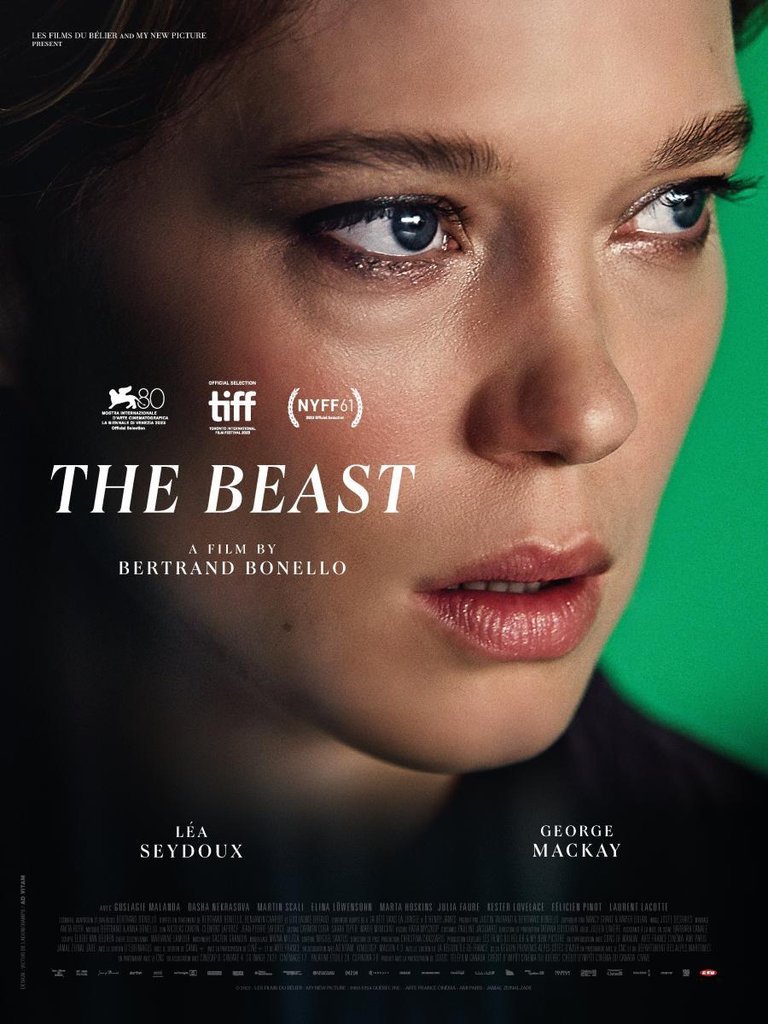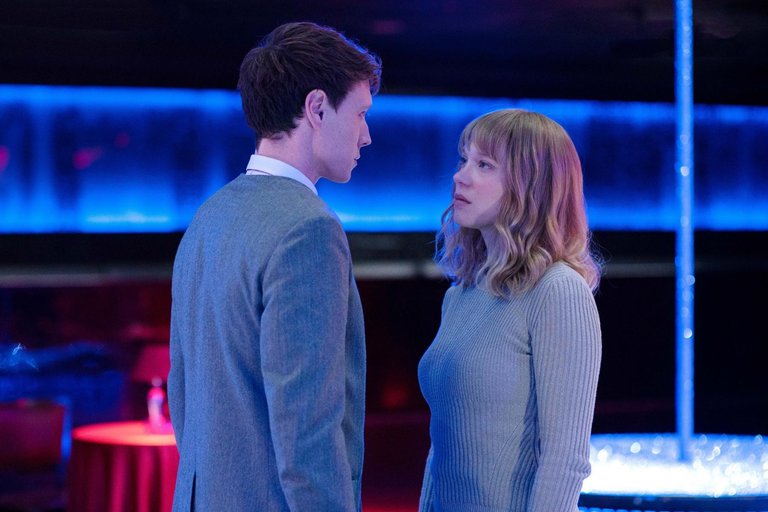The Beast (2023)

Source
A combination of dystopian sci-fi with reincarnations and past existences, a period drama about social conventions and a thriller set in L.A. where the idea of an animal stalking its prey is more evident than ever...
It has as a preamble the green screen, the current technology that materializes any chimera, or the blank page that serves as a support for the unleashed visual writing of the gabacho.
The “beast”, the unknown threat or presentiment of an imminent catastrophe, are rather “the” beasts, which in each moment and place acquire a certain form, are the obstacle for that love to never be consummated.
The fear of following one's instinct, the puritanical mentality of the early twentieth century, or the current superficiality of preserving youth at all costs, through cosmetic surgery.

Source
The simulacrum of glamorous but transitory life and the terrifying drift of “incel” thinking, more alienated than ever, until reaching the ultimate and definitive incarnation; AI, or an ever-increasing need to eliminate emotions, the last and annoying traces of a humanity that can be easily extirpated.
Dystopia has long since ceased to be the future to be the present or even the immediate past; crisis, pandemic, the consummate catastrophe.
Freeing ourselves from the danger of feeling, embracing the comfortable and predictable, as opposed to those murky feelings that humanize us, but also expose us to danger, pain and uncertainty. That which technology develops to annihilate once and for all the beast... is nothing but the Beast itself.
The film is full of reiterations, signs, like the dove as an omen of evil, situations and dialogues that are repeated as variations. The dolls and their evolution, from the naive industrial craftsmanship of the beginnings to the most perfect simulacra of human beings.
The music, from Madame Butterfly, Schoenberg, with its expression not through aesthetic beauty but through viscerality, the brutal electronic disco, the televised karaokes... and finally, a society incapable of relating or feeling if not through nostalgic evocation; perhaps what hurts and questions the most in the film.
The format and style changes with each time jump, from the classic elegance, the sequence shots of 1910, marked by a certain discontinuity and rupture of the axis, to the futuristic dissolution of spaces, the cold and impersonal, through the split screens, video-recordings, surveillance cameras, etc. of 2014.
The film is of course carried by the two of them and allows them, for obvious reasons, quite a lot of interpretative brilliance, with dialogues in different languages and a special meaning, once again, where the nature of feeling resides; the look, inexpressive, “doll-like”, or horrified, which is the key to everything, as it has always been.
0
0
0.000
0 comments